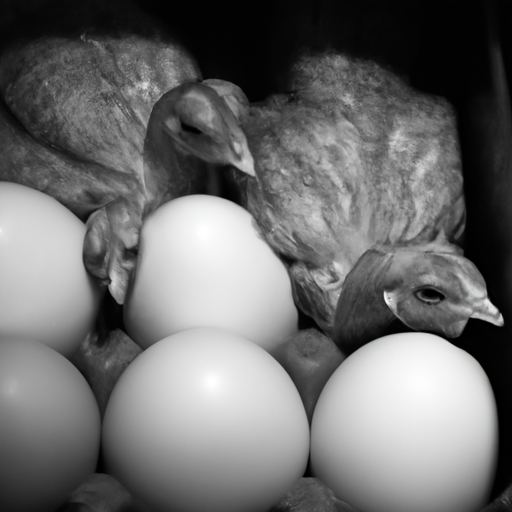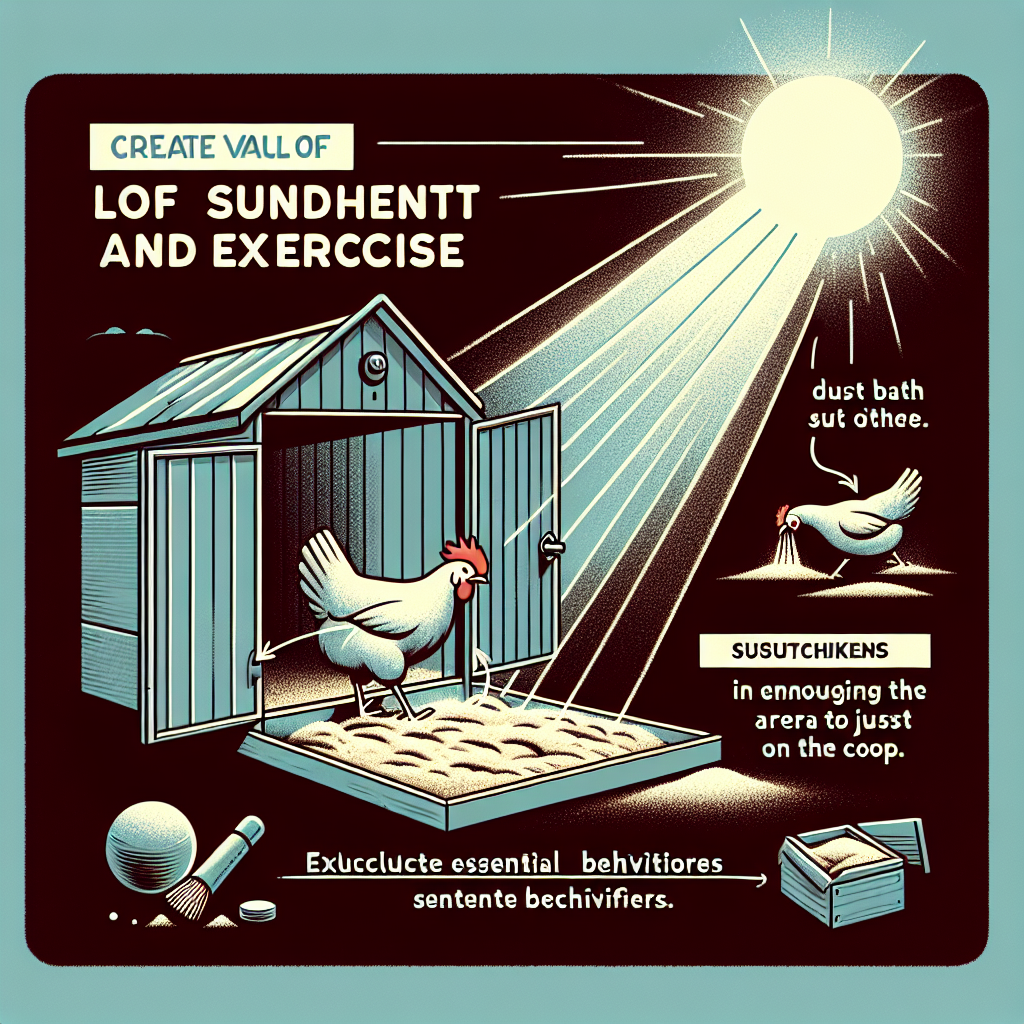Chickens, just like any living beings, have essential needs that must be met for their well-being. In order to thrive, chickens require a set of fundamental needs that encompass various aspects of their life. From proper shelter and access to fresh water, to a well-balanced diet and suitable space to roam, it is crucial to ensure these needs are fulfilled to keep our feathery friends happy and healthy. Whether you are a seasoned chicken enthusiast or considering adding chickens to your backyard, understanding their fundamental needs is paramount to their welfare and overall satisfaction.
Shelter
Protection from weather conditions
Having a suitable shelter for your chickens is essential to protect them from the weather conditions. Extreme heat or cold can be harmful to their health, so providing a shelter that shields them from these elements is crucial. A well-insulated coop can help regulate the temperature inside and keep your chickens comfortable throughout the year. Additionally, ensuring that the coop is waterproof will prevent any leaks during rainy seasons and keep the bedding dry.
Comfortable bedding
Chickens spend a significant amount of time in their coop, so it’s important to provide them with comfortable bedding. Straw, wood shavings, or sand can be great options for bedding material. The bedding should be changed regularly to maintain cleanliness and prevent any unpleasant odors. A thick layer of bedding also helps provide insulation, keeping the chickens warm during colder months.
Sufficient space
Just like humans, chickens also need enough space to move around comfortably. It is recommended to provide a minimum of 3 to 4 square feet of space per chicken inside the coop. This allows them to spread their wings, move freely, and engage in normal behaviors. Additionally, having ample space helps reduce stress and can prevent aggression among the flock. If possible, provide an attached outdoor run for your chickens to roam and forage, allowing them to enjoy the natural environment.
Food
Balanced diet
A balanced diet is vital for the overall health and well-being of chickens. Their diet should consist of a combination of grains, proteins, fruits, vegetables, and calcium-rich sources. A good-quality commercial chicken feed can provide most of the essential nutrients they need. However, supplementing their diet with kitchen scraps and fresh greens is highly beneficial. It’s crucial to ensure that their food is nutritionally balanced to promote proper growth, strong eggshells, and healthy feathers.
Access to fresh water
Water is a fundamental requirement for chickens to stay hydrated and maintain their bodily functions. Make sure that the water is clean and fresh, as dirty water can lead to various health issues. Additionally, water containers should be checked and refilled daily to ensure an ample supply. During hot weather, chickens tend to drink more water, so it’s important to monitor their water levels to avoid dehydration.
Proper feeding schedule
Establishing a regular feeding schedule helps maintain a healthy routine for your chickens. Ideally, chickens should be fed twice a day – once in the morning and once in the evening. This allows them to have a consistent source of nutrition and promotes healthy eating habits. Avoid overfeeding or leaving food out for extended periods to prevent waste and vermin infestation.
Water
Clean and fresh water
Clean and fresh water is essential for chickens’ health and well-being. Chickens rely on water for digestion, metabolism, and thermoregulation. Provide water in clean containers, ensuring they are free from contaminants and debris. Regularly clean the water containers to prevent the growth of harmful bacteria and algae. During freezing temperatures, make sure to check for ice formation and replace with unfrozen water to prevent dehydration.
Availability at all times
It’s important to ensure that your chickens have access to water at all times. Water should be available in their coop as well as in their outdoor run, if they have one. During hot weather, chickens may drink more frequently to cool themselves down, so having multiple water sources can help prevent overcrowding and ensure everyone gets enough water. Monitor water levels regularly to ensure they don’t run out, especially during hot summer days.
Proper watering system
Consider using a watering system that provides a continuous supply of fresh water to your chickens. This can be done through the use of water nipples or automatic waterers. These systems help maintain water cleanliness and prevent contamination, reducing the risk of diseases. Automatic waterers also save you time and effort by eliminating the need for constant manual refilling.
Lighting
Natural and artificial lighting
Chickens, like all living organisms, have circadian rhythms that regulate their sleep-wake cycle and overall behavior. Providing a balance of natural and artificial lighting helps maintain these rhythms and promotes healthier chickens. Natural light from windows or skylights in their coop provides a sense of normalcy and allows them to engage in natural behaviors. In addition, artificial lighting can supplement natural light, especially during shorter daylight hours in winter, ensuring consistent lighting conditions for your chickens.
Adequate duration
Chickens require a specific duration of light to maintain their biological functions. During the laying season, hens usually need at least 14-16 hours of light for optimal egg production. It’s recommended to gradually increase or decrease the lighting duration, rather than abrupt changes. This helps prevent stress and keeps their biological rhythms in balance. Use a timer to ensure a consistent lighting schedule and adjust the hours according to the season.
Maintaining circadian rhythms
Circadian rhythms are crucial for the overall health and behavior of chickens. Maintaining a consistent lighting schedule helps regulate these rhythms, ensuring they have adequate rest and activity periods. Darkness is essential for chickens to rest and sleep, so providing a dark and quiet environment during their rest periods is important. Avoid excessive or disruptive lighting during the nighttime to prevent disturbances in their natural sleep patterns.
Ventilation
Proper air circulation
Good ventilation is crucial to maintain a healthy environment inside the coop. Stale air with high humidity can lead to respiratory issues and the buildup of harmful gases. Proper ventilation allows fresh air to circulate and removes excess moisture and odors from the coop. It’s important to have windows, vents, or openings in the coop, ensuring there is enough airflow without causing drafts or exposing the chickens to extreme weather conditions.
Prevention of heat stress
During hot summer months, chickens are susceptible to heat stress, which can be detrimental to their health. Adequate ventilation plays a key role in preventing heat stress by allowing hot air to escape and cool air to move in. Natural ventilation, such as windows and vents, combined with artificial ventilation, like fans or misters, can help regulate the temperature inside the coop. It’s essential to monitor the temperature regularly and take necessary measures to ensure your chickens are comfortable.
Removal of harmful gases
The buildup of harmful gases, such as ammonia from droppings, can pose serious health risks to chickens. Proper ventilation helps remove these gases and maintain air quality in the coop. Regular cleaning of the coop, including the removal of soiled bedding and droppings, is crucial in preventing the accumulation of ammonia. Good ventilation combined with proper waste management ensures a healthy and safe living environment for your chickens.
Nesting Boxes
Clean and secure boxes
Nesting boxes provide a comfortable and safe space for hens to lay their eggs. It’s important to keep the nesting boxes clean and free from any debris or pests. Regularly check for any signs of mites or parasites and take immediate action to prevent infestation. Line the nesting boxes with clean and dry nesting materials, such as straw or wood shavings, to create a cozy environment for the hens to lay their eggs.
Appropriate size and amount
Nesting boxes should be of adequate size to accommodate the hens comfortably. A general guideline is to have one nesting box for every four to five hens. This prevents overcrowding and minimizes the chances of eggs being damaged or accidentally crushed. Ensuring enough nesting boxes also helps in maintaining the pecking order hierarchy among the hens and reduces competition for nesting spots.
Privacy for laying eggs
Hens prefer a quiet and private space to lay their eggs. Providing nesting boxes that are secluded from disturbances helps in promoting a sense of security and comfort for the hens. Placing curtains or dividers around the nesting boxes can provide an added layer of privacy. Darkening the nesting area also helps stimulate the nesting behavior and encourages the hens to lay eggs in the designated boxes.
Dust Baths
Access to dust or sand
Dust bathing is a natural behavior for chickens and is essential for their feather health and cleanliness. Providing chickens with access to a dust or sand bath is crucial for their well-being. A dust bath area can be created using a shallow container filled with fine sand or dry soil. Offering a suitable location for dust bathing allows chickens to clean their feathers, remove parasites, and regulate their oil glands.
Promotes feather health and cleanliness
Dust bathing helps keep chickens’ feathers in good condition. When chickens dust bathe, the fine particles penetrate their feathers and absorb excess oils and dirt, which are then shaken off. This self-cleaning behavior helps keep their feathers clean, shiny, and free from pests. Regular access to dust baths promotes healthier feathers, reducing the risk of feather mites or lice infestation.
Prevents parasite infestation
Dust baths play a significant role in preventing parasite infestations in chickens. The abrasive action of the dust or sand suffocates and disturbs external parasites like mites or lice, keeping them at bay. Dust bathing also helps remove any loose feathers or debris trapped on the chickens’ bodies. By offering chickens the opportunity for regular dust baths, you can significantly reduce the risk of parasites and maintain their overall health.
Perches
Multiple perches at varying heights
Chickens naturally roost on elevated perches during the night for rest and sleep. Providing multiple perches at varying heights is important to accommodate the different sizes and preferences of your chickens. This allows them to choose a comfortable perch according to their hierarchy and promotes natural roosting behavior. Having different perches also helps reduce competition for higher perches, reducing stress and potential conflicts among the flock.
Comfortable and secure footing
Ensuring that the perches provide a comfortable and secure footing is essential for your chickens’ well-being. Rounded or flat perches of appropriate thickness allow their feet to naturally grip the perch without strain. Avoid using materials that are too slippery, such as metal or plastic. Natural materials like wood are ideal for perches as they provide a more comfortable and familiar surface for your chickens to roost on.
Promotes natural behavior
Offering perches to your chickens not only provides them with a comfortable resting spot but also promotes their natural behavior. Roosting helps chickens feel safe, as it allows them to perch in a higher position away from the ground, where they can have a better view of their surroundings. By providing appropriate perches, you are providing them with an environment that mimics their natural habitat and encourages their natural instincts.
Social Interaction
Flock companionship
Chickens are social animals that thrive on flock companionship. It’s important to allow them to interact with other chickens, as this promotes their overall well-being. Chickens establish social hierarchies through pecking orders, where each individual has a specific rank within the flock. By providing opportunities for social interaction, such as allowing free-ranging or creating a larger flock, you can ensure that your chickens have the companionship and interaction they need.
Pecking order hierarchy
Pecking order hierarchy is a natural behavior among chickens where they establish their social order. This hierarchy helps maintain order, reduces conflicts, and ensures a stable flock environment. When introducing new chickens or integrating different age groups, it’s important to monitor and manage the pecking order dynamics. By providing appropriate space and resources, you can minimize aggression and establish a healthy pecking order among your chickens.
Reduced stress and aggression
Social interaction is crucial in reducing stress and aggression within the flock. An enriched environment that allows chickens to engage in natural behaviors, such as pecking for insects or foraging for greens, helps alleviate boredom and reduces the risk of aggressive behavior. Maintaining a balanced flock size and providing ample space for each chicken also minimizes overcrowding and territorial disputes, ensuring a peaceful and stress-free social environment.
Protection
Secure barriers from predators
Protection from predators is of utmost importance to keep your chickens safe. Secure barriers, such as sturdy fences or wire mesh, should be installed around the coop and outdoor run to prevent access by predators like raccoons, foxes, or snakes. Ensure that the barriers are properly secured both above and below the ground to prevent any digging or climbing predators from entering. Regularly inspect the barriers for any potential weak spots or gaps that may compromise the safety of your flock.
Safety from diseases and infections
Chickens are susceptible to various diseases and infections, so providing a safe and hygienic environment is vital. Regularly clean and disinfect the coop, paying attention to all surfaces, including perches and nesting boxes. Proper waste management, including prompt removal of droppings and soiled bedding, helps minimize the risk of diseases. Additionally, maintaining a balanced diet, providing clean water, and regularly monitoring the health of your chickens can significantly reduce the chances of diseases and infections.
Regular health check-ups
Regular health check-ups for your chickens are essential to ensure their overall well-being. Monitoring their behavior, appetite, and egg production can help detect any potential health issues early on. Scheduling regular veterinary visits or consulting with a poultry expert can provide valuable guidance in maintaining your flock’s health. By taking proactive measures and addressing any health concerns promptly, you can ensure a long and healthy life for your chickens.
In conclusion, providing the fundamental needs for your chickens is crucial for their health, well-being, and overall happiness. A suitable shelter that protects them from the weather, comfortable bedding, and sufficient space to move around are essential. A balanced diet, access to fresh water, and a proper feeding schedule ensure their nutritional needs are met. Adequate lighting, ventilation, and nesting boxes provide a safe and comfortable living environment. Dust baths, perches, and social interaction fulfill their natural behaviors, while protection from predators and regular health check-ups safeguard their safety and well-being. By prioritizing these fundamental needs, you can provide your chickens with a healthy and fulfilling life.




